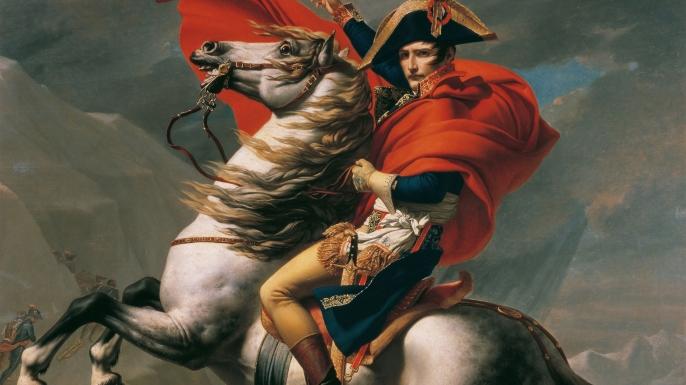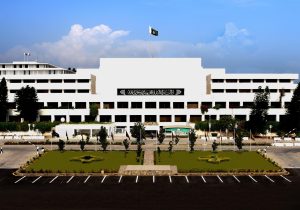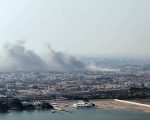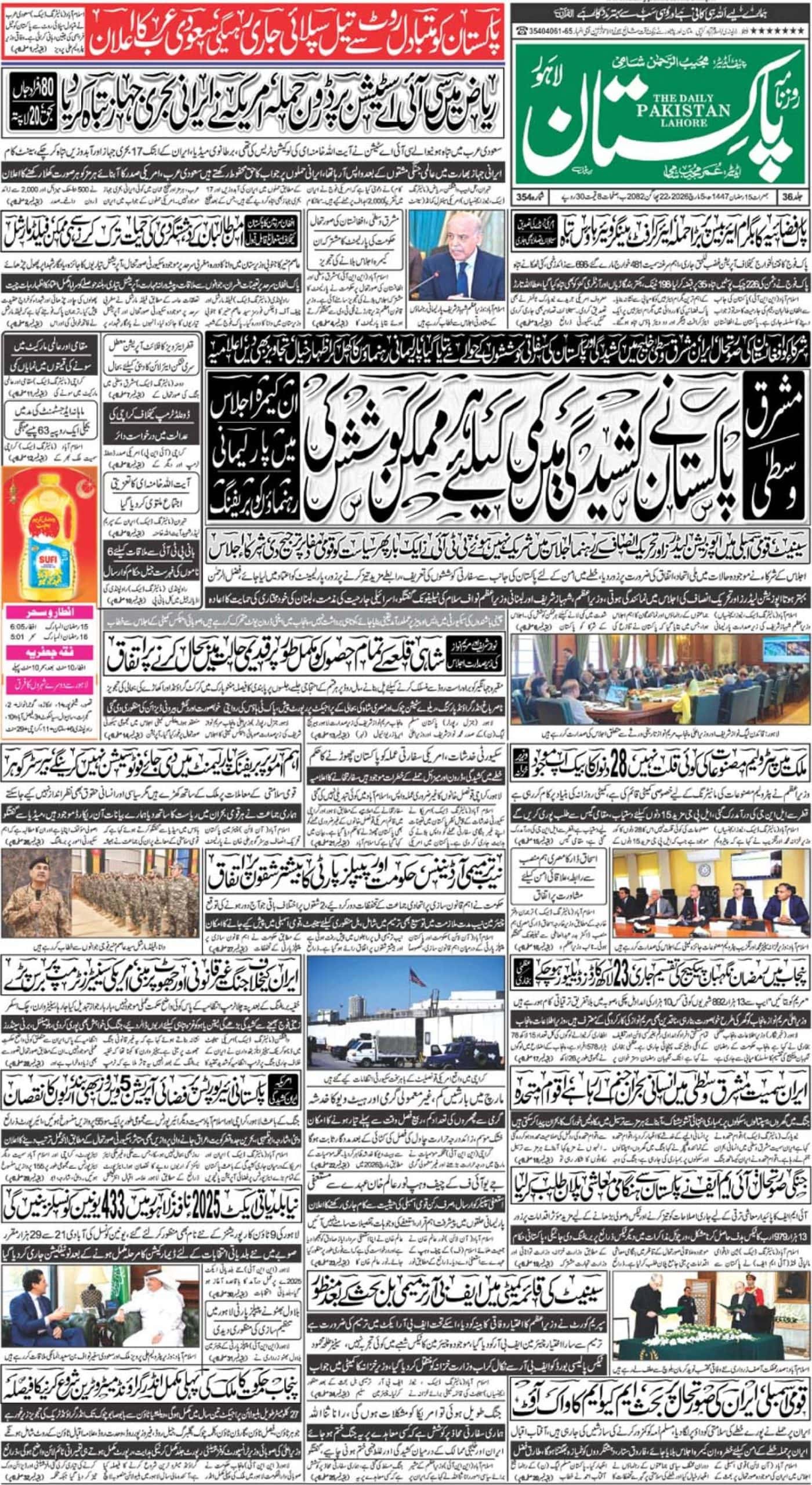Napoleon Bonaparte (1769-1821) had been sent to Egypt in order to secure the economic interests of France. The Egyptian, and subsequently the Syrian campaign, lasted from 1July 1798 – 2 September 1801. During this campaign Napoleon scored important victories over the Mamlukes, who administered Egypt on behalf of the Ottomans. In Syria he fought the Turks. It was while preparing for his Egyptian campaign, and while in Egypt, that Napoleon became acquainted with the Quran and with Islam.
However, while Napoleon was busy transforming Egypt, he, in view of the uncertain condition in France, left for France on August 24, 1799. In December 1799 he was made First Consul, i.e. the ruler, of France for ten years. In the year 1804 he assumed the title of Emperor of France. He reformed France and made tremendous achievements which his detractors deliberately omit. Apart from giving France a constitution, approved in a genuine national referendum, he also introduced the Civil Code. He built 20,000 miles of imperial roads, 12,000 miles of regional roads, almost 1,000 miles of canal and bridges, etc. All of this “financed with interest free money from Banque de France”, which he established soon after becoming the ruler of France.
In the year 1911, a French researcher, Christian Cherfils, published a book in French with the title Bonaparte Et L’Islam: D’Apres Les Documents Francais et Arabes. It is a sad reflection on the complete ignorance and indifference of the Muslims towards history, that not a single Muslim made an effort to translate this highly important book, in either Arabic or in English. It took 85 years for an English translation to be carried out, and that too was carried out by a Westerner. In the year 1999 an English translation, titled Napoleon and Islam: From French and Arab Documents, by the Scottish writer, James Gibb-Stuart (1920-2013), appeared, and like the original book, seems to have been confined to oblivion. Today, a paperback copy of the translation is at least $64 on amazon.com!
In a “Special Observation” at the outset of the book, Christian Cherfils notes: “The object of this study is both philosophic and social: we are researching the theories on Islam put out and applied by Bonaparte during his Egyptian expedition. The persistence of the Islamic idea in the Emperor’s mind is most extraordinary, but the issue lies outside the scope of this study, and we are only able to refer to it briefly.” These remarks clearly indicate that there is a lot of room for researching the impact of Islam on Napoleon’s mind and on his policies. The English translation has a very important foreword by the English scholar David Musa Pidcock (1942-1921), who converted to Islam at age 23, and who spent his life fighting against usury. He founded the Islamic Party of Britain in 1989, dissolving it in 2006.
Napoleon’s major goal was to emancipate Europe, and perhaps the world, from the clutches of the City District of London, the heart of the usurious international banking elite, that controlled British policy. Those familiar with such matters know that any leader who has supported the international banking families in their scheming to suppress and exploit humanity through a usurious world order, is eulogized in history, whereas any leader who opposes them, is condemned in history books and the media. Thus Churchill, who sold his soul to the bankers cheaply, is, according to polls in the U.K., considered the greatest Briton ever! The same is true of Franklin Delano Roosevelt, who destroyed America’s democracy and pushed it in the lap of Zionist cum Communist Jews as well as WWII. Because Napoleon opposed the bankers, he has been the subject of a campaign of vilification.
R. McNair Wilson has summed up the case against Napoleon in his 1936 book: Napoleon: The Portrait of a King. He writes: “The verdict of history upon Napoleon is known to every schoolboy. He was, that verdict declares, a soldier possessed in the highest degree of the genius of war who, by his astonishing victories, arrived at supreme power in a land shaken by revolutionary violence. At first his statesmanship, based largely on his military ideas, was successful; but afterwards the exercise of authority so greatly intoxicated him that he became consumed by ambition and careless of the rights of his fellows. His downfall followed as a matter of course.”
But if Napoleon was a military genius, “Did he really believe that his Frenchman could, permanently, inflict defeat upon all armies of Europe? Did he wish to wage unceasing war and to fight, every year, a series of great battles against armies numerically superior to his own? The barest record of his campaigns suggests that these questions cannot be answered in the positive manner in which, hitherto, it has been the habit to answer them.” Because Napoleon stood against the usurious money powers, and was known to be a mortal enemy of usury, the Rothschilds schemed incessantly to impose war on him. England was, and has been, shortly after one of the Rothschild sons moved to England, a Rothschild fiefdom. Rothschilds were, and are, absolute masters of England
In fact, as soon as he became ruler of France, Napoleon took steps to undermine usurious banking practices. He had just returned from Egypt where he had imbibed the Quranic precepts, and the ban the Quran places on usury was not lost on him. He set up the Banque de France as a joint stock company and through its institution ended the banking of thirteen, mostly Jewish, banks that had played a role in the bloodshed of 1789-1799. In the words of Stephen Mitford Goodson: “He [Napoleon] was thus his own banker, who controlled both the creation and distribution of money and credit, to the chagrin of international bankers, particularly the Rothschilds, who were virtually excluded from operating in continental markets. Napoleon made the franc the most stable currency in Europe. After France had abandoned the loan markets of the City of London, a fog of depression settled on the bankers and usurers.” And that is why trouble against Napoleon was stirred up continuously.
David Martin Pidcock writes: “On being shown a graph of debt repayments caused by interest and compound interest Napoleon is said to have remarked: ‘It is amazing that this monster interest has not devoured the whole of humanity, it would have done so long ago had not bankruptcy and revolution acted as counter poisons.’ Which helps to explain his agreement with the Grand Sanhedrin of France under which, for certain concessions, the Jews agreed to give up usury, i.e. the practice of lending money at interest. On the 9th of February 1807, Rabbi David Sinzheim together with forty-six other rabbis and twenty-five laymen assembled in Hotel de Ville and confirmed the decision to its parent.” The Sanhedrin is the supreme body of Jews that takes decisions on matters pertaining to the Jewish community. This announcement was undeniable proof that Napoleon wished to end usury from the world.
Napoleon’s clear position and steps against usury activated the intriguing international bankers led by the Rothschilds. McNair writes: “In the year 1805 the French emperor was faced by a coalition of England, Austria and Russia; in 1806 and 1807 by a coalition of England, Prussia and Russia; in 1808 and 1809 by a coalition of England, Spain, and Austria; and in 1812 by a coalition of England and Russia, which in the following year was enlarged to include Prussia and Austria also.” One may note that it was always the Rothschild backed England, and the Rothschild money power – they provided loans to all adversaries of Napoleon – that did not give him a moment’s respite. In the words of David Musa Pidcock: “His Russian campaign. According to McNair Wilson, was not a misjudged, reckless affair, but a situation forced upon him through a treacherous betrayal.” The Russian campaign exhausted his army fatally.
Napoleon was, from a very young age, an avid reader of history. While a cadet in the army he began writing a book on Corsica. He read so much that the librarian got him a membership of a subscription library. He exhausted all the books on the subject in the subscription library and had to order books from elsewhere! Christian Cherfils writes: “Even before leaving France Bonaparte had decided to study the Quran. Under the significant heading of Politics and Morality, he had ordered them to obtain for his Camp Library copies of the Old and New Testaments, the Quran, the Vedas, Mythology and Esprit des Lois by Montesquieu.” In his Proclamation to the Land Forces dated 22nd June 1798, Napoleon stated: “The people you are going to live with are Muhammadans; their first article of faith is this: ‘There is but one God, and Muhammad is his Prophet,’ Do not contradict them; …”
A Memorandum on Internal Administration, dictated by Napoleon, states: “The ulemas and the great sheikhs are the leaders of the Arab nation; they have the confidence and affection of all Egypt’s inhabitants: that is what has at all times made the Turks and Mamelukes so jealous of them, and has kept them distant from the management of public affairs.” Napoleon changed this policy completely. Napoleon lost no time in making these ulema and sheikhs in charge of civil and criminal justice. He wrote: “I have preferred ulemas and doctors of law: 1. because they are natural leaders; 2. because they were the interpreters of the Quran…; 3. because the ulemas have civilized habits, love justice, are rich and animated by good moral principles. They are indisputably the most honest people in the country.”
An order issued from the Commander’s [i.e. Napoleon’s] quarters dated 16th August 1798 directs that the pomp and show with which the birthday of the Prophet was celebrated in Cairo, must be made known to all villages. The order was to be translated in Arabic and thirty copies sent to each province. It states: “Nothing so splendid has been seen in the memory of man. All the army units in Cairo, illuminated by a multitude of torches, paid a visit to the Sheikh El-Bekry where the commander in chief [i.e. Napoleon] dined, along with Moustafa-Pacha and all the principal officers taken prisoner at the Battle of Aboukir. The commander in chief was present at the readings that were given of the various Arab poems in honor of the Prophet, after which, surrounded by the great sheikhs, he ordered prayers and had the genealogy of the Prophet recited to him. The pasha and all the Turkish prisoners could not contain the surprise at seeing the respect which the French have for Islam and the law of the saintliest of prophets.”
Napoleon had ideas about setting up a genuinely Islamic administration in the country. On August 28, 1798, twelve days after the great celebration of the Prophet’s birthday, he wrote to Sheikh El-Messiri: “You know of the particular esteem which I conceived for you at our first acquaintance. I hope that the time will not be long before I can bring together all men of wisdom and learning in the country, and set up a balanced regime founded upon the principles of the Quran, which are the sole truths, and which alone can bring happiness to man.” It is quite clear that Napoleon had formed an opinion about, and had an evaluation of, Islamic principles and philosophy.
After quelling a mischievous revolt by some elements he addressed the inhabitants of Cairo, through a written statement dated 21st December 1798. He wrote: “Perverse elements had misled a segment amongst you; they have perished. God ordered me to be forgiving and merciful to the people. I have been both forgiving and merciful towards you…. Make it known to people that since the world began, it has been written that after having destroyed the enemies of Islamism and vanquished the Cross, I would come from the fastnesses of the West to fulfill the task which has been imposed upon me. Help the people see that in the saintly book of Quran, in more than twenty passages, what is happening now has been preordained, and that which will happen is equally well explained.” It is clear that he had been reading the Quran.
On the 10th of Muharram 1214 (June 14, 1799) Napoleon drafted a detailed proclamation in French and sent it to the ulema of the divan for translation, printing, and distribution, in their name, to the population of Egypt. It contained the following sentences: “You know that Bonaparte the Commander-in-chief, on his arrival in Egypt, declared to all members of the divan that loved the Islamic religion, honored the Prophet (upon whom be many salutations), respected the Quran, read from it every day and trusted in it. He had ordered the maintenance of religious observances in Islamic mosques, a preservation of the advantages conferred by the imperial wakfs, and no derogation of customs regulating the institution of the janissaries; in effect he has taken every care for the sustenance of the people.”
Many of the letters written by Napoleon to various Muslim leaders began with the following words: “In the name of the forgiving and merciful God. There is no but God and Muhammad is His Prophet.” The letter to Sherif of Mecca dated 30th June 1798 opens with the above words. His letter to the Sultan of Morocco, written on August 15, 1798, begin as follows: “There is no god but God and Muhammad is His Prophet. In the name of a forgiving and merciful God.” A letter that he wrote to the members of the Cairo Divan, informing them of Russian designs, also begins as: “There is no god but God and Muhammad is His Prophet.”
In the above mentioned letter he also attacks the concept of Trinity. He mentions the arrival of the Russian fleet of 80 ships off the coast of Alexandria. He stated: “This army has come to Egypt to link up with the Mamlukes and the Bedouins with the intention of pillaging and devastating the country. It is composed of many Muscovites, whose enmity to the Muslims is known to all. They detest all those who adore God and believe in His Prophet, and they believe in Trinity. Soon they will see that the plurality of gods avails them nothing, for that belief is false and God gives victory to those who believe in His unity and He comes to the aid of just men. He has given me this country to drive out injustice and make justice reign again.”
When Napoleon first arrived in Egypt he was accompanied by scholars, engineers, scientists, and others. One of the first things he did was the establishment of the Egypt Institute. A contemporary Muslim writer has stated: “The houses situated in Rue Nasriah were put at the disposal of the mathematicians, astronomers, architects, painters and writers.” Houses of important persons of the Turkish administration were also occupied. One of the houses had been luxuriously furnished with exactions that the owner had obtained. “The French installed in this latter house a large library with librarians who looked after the books and passed them out to not be prevented, would on the contrary be received with affability the readers who required them…. If a Muslim desired to visit the building, he would be received with affability. The French were especially pleased when the Muslim visitor appeared to show an interest in the sciences; they immediately entered into conversation with him and showed him all sorts of printed books, with figures representing various parts of the terrestrial globe, animals and plants.”
Napoleon genuinely wished to revive Islam and deeply desired an alliance of France and Islam. He questioned that why was it that when France was Christian the Turks were willing to cooperate but now, when France in Egypt had overwhelmingly turned pro-Islamic or Islamic the Turks were not willing to join hands against the enemies of Islam. He had also contacted Tippu Sultan in India to forge an alliance with the forces of Islam against its enemies, the usurious money lenders of the city of London.
Napoleon’s letter to Tippu Sultan has been reproduced in the book by Cherfils. He wrote: “You have already been informed of my arrival on the shores of the Red Sea, with a huge and invincible army, filled with the desire to free you from the iron yoke of England. I am anxious to let you know of my desire to have from you, via Mascate and Mocha, news of your present political situation. I would even appreciate your sending to Suez or Greater Cairo, some able men who had your confidence, and with whom I can confer.” Cherfil notes: “This letter was connected with a complete plan for government through Islam. And the culminating objective was India.”
One of Napoleon’s crucial desires was to revive science in Islamic countries because he was not only aware of the glorious scientific past of the Muslim world, he knew that without scientific knowledge Muslims will be subdued by their enemies and will remain prey to fanaticism. He knew full well that the strength of the West lay in its supremacy in the sciences. He had drawn up a document in which his plans and proposals for the regeneration of Islam were stated. And it included of the objective of the scientific regeneration of Islam.
Napoleon interacted regularly with scholars of Jamia Al Azhar. An official French document states that every day Napoleon used to meet the muftis of the four schools from Al Azhar, “the Cha’fey, the Melky, the Hanbaly, the Hanafy…” It states: “They were old men respected for their morals, their knowledge, their riches and even for their birth. Every day, at sunrise, they and the ulemas of Gama-el Azhar took the habit of going to the palace, before the hour of the prayer…. They arrived on their richly harnessed mules, surrounded by their servants and a la.ge number of cudgel bearers. The French guard presented arms and treated them with all the honors.”
Once these ulema and muftis and their retinue entered the reception area they were treated with sherbet and coffee. “A few moments later, the general would enter, seating himself in the midst of them, on the same couch, and seeking to earn their confidence by discussions on the Quran, having them explain the principal passages and showing great admiration for the Prophet. On leaving they would go to the mosques where people had assembled.”
Napoleon’s discussions on Islamic principles with the muftis and ulema of al Azhar were not an idle exercise – he sought to genuinely understand Islam. And when he became the ruler of France, Napoleon applied what he had learned of Islam in Egypt. David Musa Pidcock, in his preface to the English translation of Cherfils’s book, quotes writer Jess McAree: “Another lasting Napoleonic legacy is the Civil Code – also known as Code Napoleon – still predominantly the law of France, Belgium and Luxembourg. The fundamentals it grants are equality under the law, the ending of feudal rights, the inviolability of property, freedom of conscience, and the right to divorce.” Please note that France was Catholic and divorce was not permitted prior to Napoleon’s reforms. McAree has also remarked that Napolen’s “Legal and constitutional reforms were a century ahead of time.” Pidcock then notes: “For Muslims, this will come as no surprise when they realize that 96% of the Code-Civil i.e. the Code Napoleon is drawn entirely from Islamic jurisprudence based on the fiqh or rulings of Imam Malik.”
One of the most astonishing things that has been mentioned by Pidcock, has been hinted at by Cherfils in the book. When Napoleon returned from his Syrian campaign he wrote a proclamation for the people of Egypt to be sent in the name of the Divan of Cairo. This has been reproduced in two parts. The second part is document XXIV in the book. The opeing comments by Cherfils to this document state: “He [Napoleon] often learns from the prayers of the Quran, which he is beginning to know and love, and we know his plan is to build a grand mosque, after which he will embrace Islamism.” This statement is reinforced by the attached footnote 74. The footnote is From the Unpublished Diary, Vol 1, p 348: “The sheikhs were always telling me that if I wanted to set myself up as a patriarch, the army would have to become Muslim and wear the turban. That indeed was my intention, but I did not want to take this step until being sure of success – without which like Menou, I would be covered in ridicule.” Menou was General Menou of the French army, who had publicly embraced Islam.
To the above information David Martin Pidcock has added something breathtaking. He writes (emphasis in original): “From a Judeo-Christian perspective the antipathy towards Napoleon is perhaps more understandable – particularly in the light of his ‘official’ conversion to Islam at the end of the eighteenth century. Following which, the caricaturist James Gillray, depicts him wearing a turban with the caption reading: ‘Democratic Religion – Napoleon turning Turk.’ This may well have been in response to the official headlines in the Gazette Nationale ou Le Moniteur Universel that announced Napoleon’s conversion to Islam on the 6th of the 12th of 1798 [December 6, 1798], and his adoption of the name Ali Bonaparte.”














